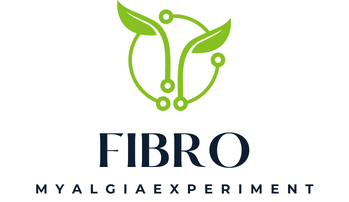Being a pet owner involves not only love and care, but also responsibility. In particular, it requires being attentive to your pet’s health. Dogs, especially, are prone to various health issues, one of which is hip dysplasia. This condition, common among certain dog breeds, can cause your four-legged friend considerable pain and discomfort. Fortunately, there are ways to support your dog’s joint health and mitigate the symptoms of hip dysplasia. A proven approach involves the use of dietary supplements. These supplements can help nourish the joints, reduce pain, and improve mobility. This article provides comprehensive insights into choosing the right nutritional supplements for a dog with hip dysplasia.
Understanding Hip Dysplasia in Dogs
Firstly, it’s essential to understand what hip dysplasia is and how it affects your dog. Hip dysplasia is a prevalent degenerative condition in dogs, where the ball and socket joint in the hip do not fit together correctly. This results in the wearing down of the cartilage, leading to joint inflammation and pain. Your vet can diagnose this condition through a physical examination and X-rays.
A voir aussi : How to Design a Feeding Strategy for a Dog with Megaesophagus?
The symptoms of hip dysplasia can vary from dog to dog. Some dogs might show signs of stiffness and pain, while others may have difficulty getting up, especially after a long rest. All these symptoms can significantly affect your dog’s quality of life.
Role of Nutritional Supplements in Managing Hip Dysplasia
Nutritional supplements can play a crucial role in managing the symptoms of hip dysplasia. These supplements contain ingredients that help support joint health and alleviate the discomfort associated with this condition.
A voir aussi : What’s the Best Approach to Introduce a Dog to a Baby with Minimal Stress?
Glucosamine, for instance, is a natural compound found in healthy cartilage. It’s one of the most commonly recommended supplements for joint health in dogs. Glucosamine provides the building blocks for repairing damaged cartilage, thereby improving joint function and reducing pain.
Another key ingredient often found in joint supplements is chondroitin sulfate. This compound helps inhibit destructive enzymes in the joint, thereby helping to preserve cartilage and joint structure. When used together, glucosamine and chondroitin can synergistically help slow down the progression of hip dysplasia and improve your dog’s mobility.
Choosing the Best Supplement for Your Dog
When choosing a supplement for your dog, it’s essential to consider several factors. The first is the quality of the supplement. Not all supplements are created equal – some brands may use inferior ingredients or inappropriate dosages. It’s always advisable to choose a reputable brand that has been recommended by a veterinarian.
Next, consider the specific needs of your dog. Factors such as age, breed, weight, and the severity of the condition can influence the choice of supplement. For instance, older dogs or those with severe hip dysplasia might need a higher dosage of glucosamine compared to a younger or smaller dog.
Lastly, consider the form of the supplement. Supplements come in various forms, including tablets, chews, liquids, and powders. Choose a form that your dog prefers and one that’s easy for you to administer.
Involving Your Vet in the Decision
It’s crucial to involve your vet in the decision-making process. While supplements can be a helpful addition to your dog’s diet, they should not replace proper veterinary care. Your vet can guide you on the best type, dosage, and brand of supplement based on your dog’s unique needs.
Additionally, some dogs may have allergies or sensitivities to certain supplement ingredients. Your vet can help identify any potential issues and suggest alternatives as needed. Moreover, they can help monitor your dog’s progress and adjust the treatment plan as necessary.
To sum up, while hip dysplasia can be a challenging condition to manage, the right dietary supplements can make a big difference in your dog’s health and comfort. By understanding what to look for and consulting with your vet, you can choose the best supplement for your dog’s needs.
Additional Nutrients Beneficial for Hip Dysplasia
Besides glucosamine and chondroitin, several other nutrients can also help manage hip dysplasia and support your dog’s overall joint health. Here, we discuss some of the most beneficial nutrients that can be looked for when choosing a joint supplement for your dog.
Omega Fatty Acids are essential for maintaining your dog’s overall health and specifically, joint health. These fatty acids, particularly Omega-3s, are known for their anti-inflammatory properties. They can help reduce inflammation in the hip joint, thereby relieving joint pain. They also contribute to the lubrication of the joints, improving mobility in dogs with hip dysplasia.
Hyaluronic Acid is another vital ingredient you might want to consider. This substance is a component of joint fluid, acting as a lubricant and shock absorber. In dogs with hip dysplasia, hyaluronic acid can help maintain joint fluid viscosity, which is crucial for joint movement and comfort.
Finally, some joint supplements for dogs include antioxidants, like Vitamin E and Selenium. These nutrients help combat oxidative stress, a major contributor to joint degeneration in dogs with hip dysplasia.
Remember to ensure that any supplement you choose provides a balanced blend of these nutrients. Always look for supplements from reputable brands, and avoid any product that does not list its ingredients or their quantities clearly.
Alternatives and Additions to Nutritional Supplements
While joint supplements play a significant role in managing hip dysplasia, they should not be the only line of defense. Other measures can help improve your dog’s joint health and quality of life.
Exercise is essential for maintaining your dog’s overall health and particularly, joint health. While it’s crucial to avoid high-impact activities that may aggravate your dog’s condition, low-impact exercises like swimming or walking can help strengthen muscles around the hip joint, thereby improving mobility.
Weight management is another crucial aspect. Extra weight puts additional strain on your dog’s joints, exacerbating the symptoms of hip dysplasia. A balanced diet, combined with regular exercise, can help keep your dog’s weight in check.
Also, consider physiotherapy or massage therapy. These therapies can help relieve joint pain, increase joint flexibility, and improve overall mobility in dogs with hip dysplasia. Always consult your vet before starting any new exercise or therapy regimen for your dog.
Conclusion
Hip dysplasia can significantly affect your dog’s quality of life. However, with the right approach, including suitable nutritional supplements and lifestyle modifications, you can manage your dog’s symptoms and help them live a comfortable life.
Remember to always consult with your vet before starting any new supplement or treatment. They can provide the most accurate advice based on your dog’s specific needs and health condition. And remember, while supplements can help manage the symptoms of hip dysplasia, they should be part of a comprehensive care plan that includes regular vet check-ups, a balanced diet, controlled exercise, and plenty of love and care. Your dog’s health and well-being are always worth the effort.






